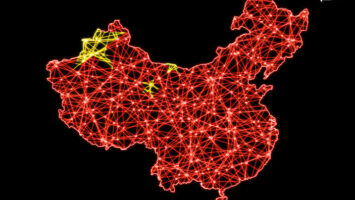SNEAK PEEK
- The Milady Maker NFT collection, under Remilia Corporation, faces leadership disputes that have now reached the courtroom.
- John Duff, Henry Smith, Maxwell Roux, and Bruno Nispel are legally challenging Krishna Okhandiar over control and financial irregularities.
- Plaintiffs allege Okhandiar transferred substantial digital assets from the company’s multi-signature wallet for personal gain.
The leadership dispute over the Milady Maker NFT collection, managed by Remilia Corporation, has escalated from online skirmishes to a full-blown courtroom confrontation. The collection, which debuted in August 2021, has achieved substantial market presence, with a total volume of 82,902 ETH, equivalent to over $131 million, on OpenSea.
John Duff, Henry Smith, Maxwell Roux, and Bruno Nispel, all associated with Remilia Corporation, have initiated legal proceedings against Krishna Okhandiar, accusing him of misappropriating millions and attempting to monopolize control of the company. This lawsuit, lodged on September 22, follows a separate legal action by Okhandiar earlier in the month. All parties involved have asserted claims to be founders or co-founders of the project.
The internal strife within Remilia, once perceived as a DAO, has been simmering since Okhandiar, also known as Charlotte Fang, was unmasked in May 2022 as the individual behind the contentious online alias “Miya.” Despite distancing himself from Remilia and the Milady project and delegating control to Smith and Nispel, tensions flared again when Okhandiar alleged that an unidentified developer had hijacked control of the company’s social media accounts and absconded with $1 million in fees.
Good morning. A developer who worked on Bonkler took steps that allowed him to divert ~$1MM USD in Remilia’s generated fees.
The Bonkler reserves, main contract and NFTs are safe; only Remilia’s revenue from Bonkler was compromised.
We’ve temporarily paused Bonkler’s daily mint… pic.twitter.com/1QOQDiXka3
— ♡ Charlotte Fang 🐉 Crown Prince (@CharlotteFang77) September 11, 2023
In response, the plaintiffs have alleged that Okhandiar orchestrated their expulsion from Remilia Corporation and failed to honor promises of equity and corporate documentation. They contend that Okhandiar, utilizing his access to the company’s multi-signature wallet, transferred approximately $600,000 worth of digital assets to his personal account and removed an additional $1.7 million from the company’s treasury.
However, Okhandiar’s narrative diverges sharply, asserting his sole founder status since January 2021 and dismissing Duff, Smith, and Roux as independent contractors with no equity in the company. He contends that any financial transactions were legitimate, and the plaintiffs are not entitled to any unpaid salaries or bonuses.
Moreover, the plaintiffs have revived the year-old “Miya” controversy, highlighting Okhandiar’s alleged history of online antagonism and verbal abuse under various aliases, including Charlotte Fang. Roux has claimed that the working environment was marred by Okhandiar’s abusive and harassing behavior, but the team continued to work on the NFT projects despite the hostile atmosphere.
In addition to unpaid wages, the plaintiffs are seeking the establishment of a constructive trust encompassing the assets, funds, and intellectual property related to the NFTs they created. The ongoing legal battle underscores the complexities and challenges emerging in the rapidly evolving NFT space, highlighting the need for clear governance structures and transparent operational practices.









